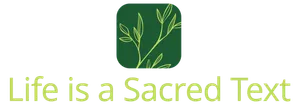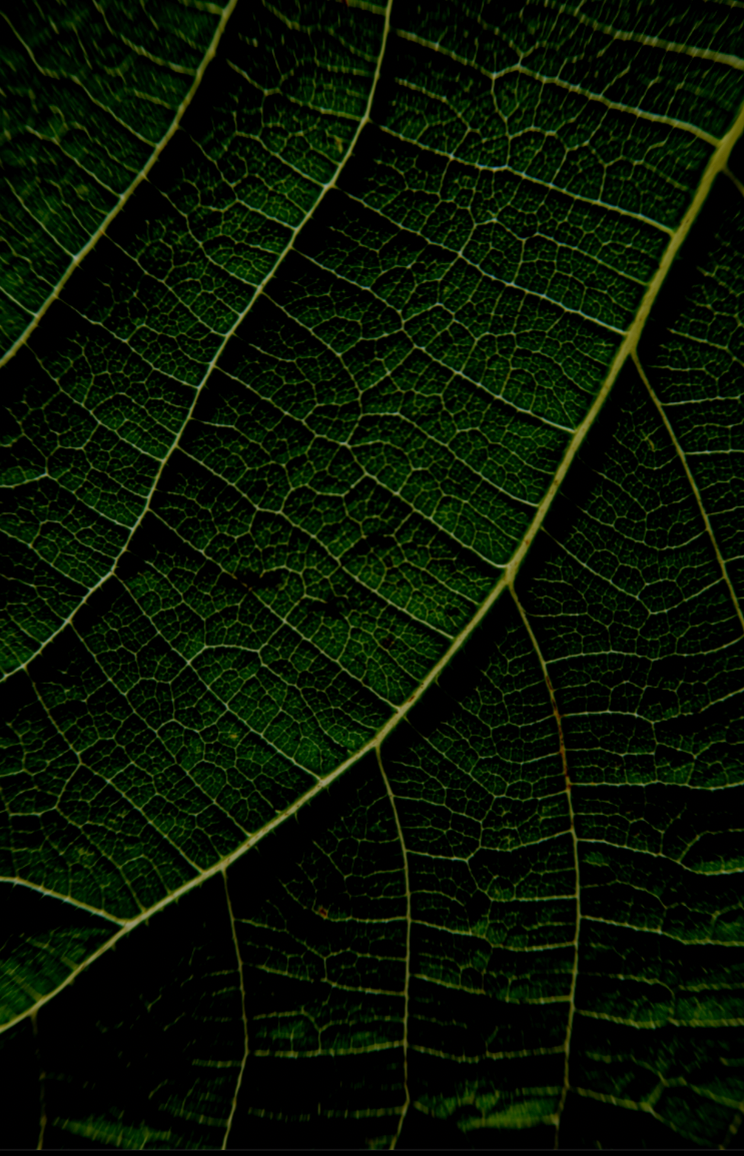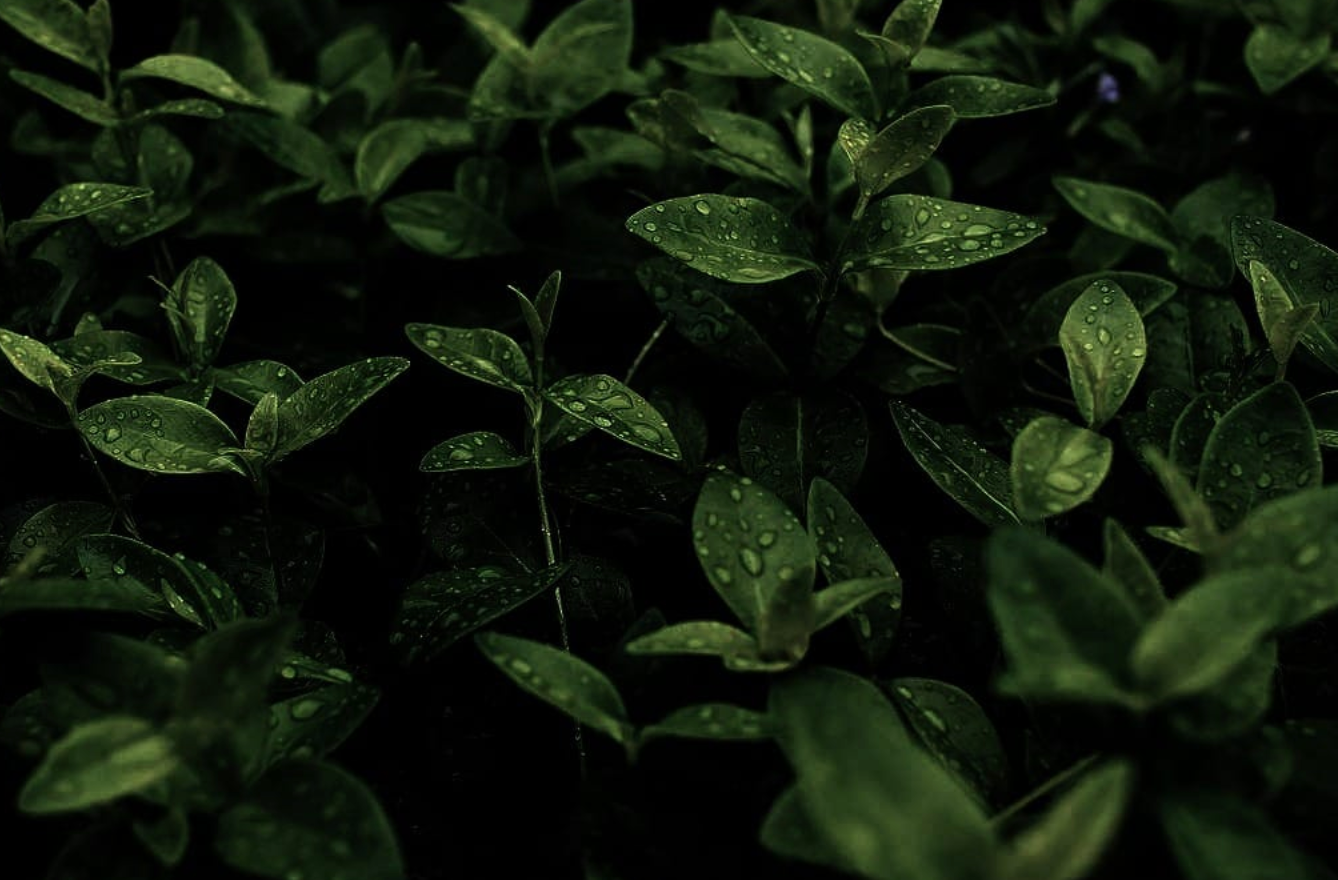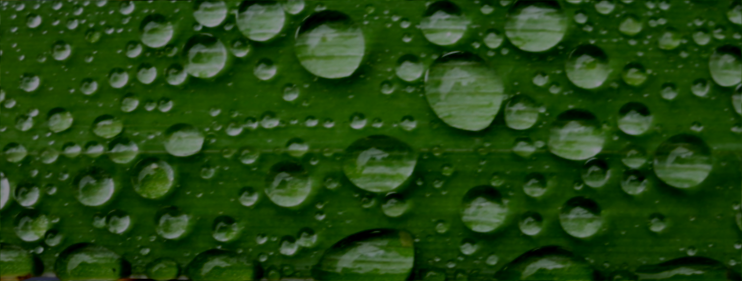On Vending Machine Theology
God is not a kiosk and your prayers are not a quarter

This is Life as a Sacred Text 🌱, an everybody-celebrating, justice-centered voyage into ancient stories that can illuminate our own lives. It‘s run on a nonprofit, so it’s 100% NAZI FREE. More about the project here, and to subscribe, go here:
There's a lot of what's at risk of being understood as what I call Vending Machine Theology in Deuteronomy. A lot.
And, in fact, one chunk of it eventually becomes part of the core Jewish liturgy, known as the second paragraph of the Shema.
Its first verse (Deuteronomy 6:4) is probably the most famous piece of liturgy in our tradition: Hear, Israel! God is our God, God is one.
And then there are three paragraphs that are traditionally recited after that verse, all regarded as part of the Shema: the V'Ahavta (Deuteronomy 6:5-9) V'haya Im Shamoa (Deuteronomy 11:13-21) and Vayomer (Numbers 15:37-41).
So, after that first "Hear, Israel!" line, and then the better-known first paragraph about loving God with all your heart, soul and might and so forth, we get to this one:
If, then, you obey the commandments that I enjoin upon you this day, loving God your God and serving God with all your heart and soul, I will grant the rain for your land in season, the early rain and the late. You shall gather in your new grain and wine and oil— I will also provide grass in the fields for your cattle—and thus you shall eat your fill.
Take care not to be lured away to serve other gods and bow to them. For God's anger will flare up against you, and God will shut up the skies so that there will be no rain and the ground will not yield its produce; and you will soon perish from the good land that God is assigning to you.
Therefore impress these My words upon your very heart: bind them as a sign on your hand and let them serve as a symbol on your forehead, and teach them to your children—reciting them when you stay at home and when you are away, when you lie down and when you get up; and inscribe them on the doorposts of your house and on your gates—to the end that you and your children may endure, in the land that the God swore to your ancestors to assign to them, as long as there is a heaven over the earth. (Deuteronomy 11:13-21)
Seems pretty straightforward on the face of things, doesn't it?
If you're a good little goober and do all your homework and your chores, if you don't swear or scuff your shoes, you will get cookies!!
If, however, you are a naughty noodle, you will be sent to bed without dinner and you will not like that at all.
So do what you're told, yeah?
Or, to put it another way: If you insert mitzvot into the Divine Vending Machine, you will receive rewards. Quid pro quo.
We can understand how people get an idea of an authoritarian, somewhat abusive parental deity from passages like this, no?

The only problem is– I don't actually believe that this is how the world works.
Do you?
You don’t insert deeds or prayer into the divine vending machine and genuinely expect to get exactly the candy you’re hoping for, do you?
Sure, it's a tempting line of thought, especially if you're having a good hair day and happen to be economically stable and able-bodied: If I pray just the right prayer in just the right way, I will be granted this parking spot and this life partner or be deemed exempt from cancer or mass shootings because the Big Skydaddy has decided that I'm Good™️.
Those other people, though? The ones whose lives were destroyed by hurricane or bombing, or who starved to death by blockade, or the ones who live in constant pain after the malpractice of medical racism or who were deported back to where it wasn't safe before? They definitely didn't bind the right way, didn't impress properly upon their hearts, clearly fell behind on their inscribing. And look what it got them!!
This song, from Mark Growden, is a...gritty response to Big Authoritarian SkyDaddy theology.
Needless to say, Blame the People Who We Have Decided Aren't Feeding The Vending Machine Right (Who Are Always, Conveniently, The People We're Trying To Demonize And/Or Bend Into Submission) is a popular, time-tested strategy among some religious elites.
But we know that that's not right. Intuitively, intellectually, and through our lived experience. The Parkland school massacre didn't happen because same-sex marriage became the law of the land three years prior; Hurricane Katrina wasn't God's punishment for Israel's withdrawal of settlements from Gaza; and, well, that one pastor who said that floods happened because of abortion access legislation was mighty surprised, a few years later, to find his own home... flooded. (Whoops.)
So, then– how might we make sense of this passage, above?
I first heard the great Rabbi Arthur Waskow teach his approach to that set of verses almost 25 years ago– what he, many years ago, called the "acid rain" approach.
He begins, in one version of his take, with the Shema, which he renders as a reminder
to experience what is One beneath: “Listen up, you Godwrestler: The Breath of Life is your God, and the Breath of Life is One.”I linked to the pieces reminding you why Israel might be translated as one-who-wrestles-with-God and why the Tetragrammaton, the great true name of God, might be translated as the Breath of Life, or.. pure being. The latter, especially, is important for Rav Waskow's reading, here.
From there, he notes that the first paragraph after the Shema–the V'Ahavta, the charge to love God– is in the first person singular, whereas the second paragraph, the one we've been looking at today, is in the plural, is directed at the whole community. And in it, Rabbi Waskow notes,
We look beyond all human life at those beings that do not speak at all—mountains and rivers, ozone and oak trees, beetles and krill. We might imagine they live in an utterly separate world beyond us, on which we have no effect at all.
So we pause to remember that if we pour poison into earth and air and water, it is poison that we will eat and drink and breathe.
If we chop up the sacred reality that all life flows and breathes as One, if we elevate useful parts of the Whole like our own prosperity and ambition into Godlets...that we worship, then the rains will dry up or turn to acid, the atmosphere itself will scorch us, the very heavens become our enemy. So we remember: Sh’ma!? [Listen!?] All life is One!
...At the individual level, this wistful hope of just reward and punishment is indeed very often false. But when society as a whole pursues decency, the chances are much higher (not 100%) that it will prosper, while a society that makes a habit of evildoing is liable to have evil fall upon its head.
Perhaps an individual person gets cancer less because they personally have done something wrong, but because we as a nation and a globe have poisoned our air, our water, and our food with toxic chemicals and negligence?
Just as the increase in climate disasters– wildfires, heatwaves and droughts, heavy rainfall, hurricanes and tsunamis– are not signs that specific sections of the world have been marked as sinner-filled so much as a sign that the climate emergency in which we now find ourselves has ravaged out of control, taking myriad innocents, and homes, and livelihoods in its path?
And as the increase in human beings displaced as a result of these events is not because the individual people have failed to inscribe, failed to bind, failed to impress upon their hearts, but because we, as a nation and a world have failed them, both before and as they needed to seek sanctuary. It is collective impact that has displaced those by drought in Syria, soil erosion in Bangladesh, the hurricanes in Central America that drove many into Mexico and towards the US, in search of refuge, the 3-4 million (or more) people in the US who are now considered "climate migrants," or the many more around the globe– 32 million people by 2022, possibly up to 1.2 billion by 2050. Not any of their specific individual fault.
As it happens, only 57 oil, gas, coal and cement producers are directly linked to 80% of the world’s global fossil CO2 emissions since the 2016 Paris climate agreement– emissions which have all gone up in that time. And the U.S. military may be a bigger polluter than 140 countries– most medium-sized nations.
So it's not to say that the climate crisis is nobody's specific fault, or that it cannot be solved with clarity and focus.
Individuals do have free will, and sometimes they use it atrociously. Sometimes they use it to perpetuate great horrors upon other humans.
In many of these cases, it's likely that many of those who are culpable tell themselves that there's nothing that they can do, or that they're doing the right thing, that they're making the right choices for themselves, their family, their people, their country.
Here, as most situations in which harm is being perpetuated: the best paths forward are not mysterious.
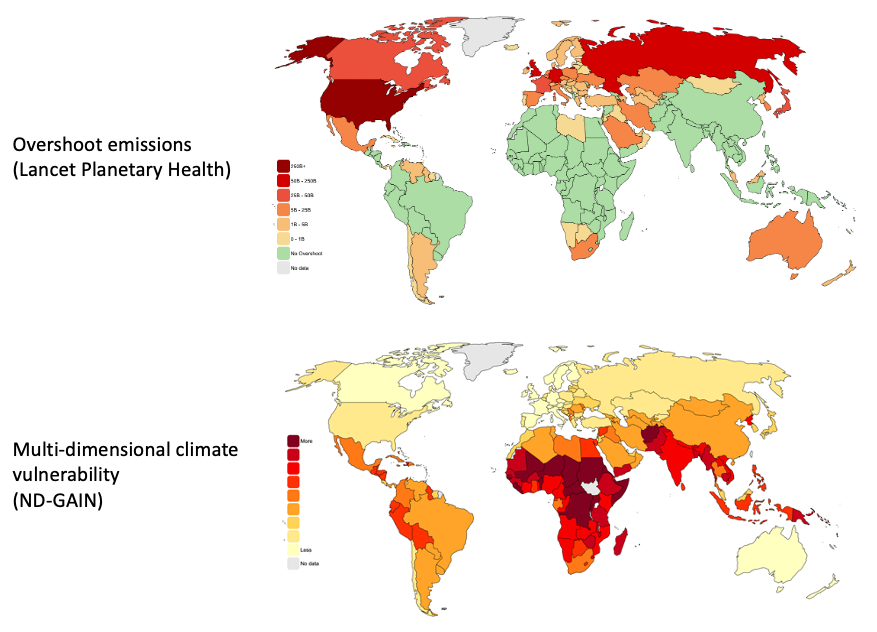
We are part of not only the great interconnected Everythingness, but to complex systems and structures– and we are tangled up, inextricably, in both problematic and in hopeful ways, with the collective actions of our community, with the nations in which we live, with all people.
How we connect to the great Breath of Life– the Big Bigness that binds us and unites us, that ties us to the earth, the skies, to one another, to the passage of time– it all matters.
Yes, even now.
Yes, especially now.
It’s upon each of us, in the ways that we can, to attend to our role in the collective political, economic, environmental and social well-being — and to not pass the theological buck to a deity who has done nothing if not give us the power of free will, the power to heal or to hurt, to agitate for a better world or capitulate to the interests of power and capital, to support war or fight for peace, to figure out how to use our resources and talents towards pushing the needle, to pretend that we're not rubber stamping the harm of others— or to stand idly by and do nothing.
I shared a draft of an organizing playbook a few weeks ago. In it, there was a reading list– some important starting points for us. (I'll note that Not Too Late: Changing the Climate Story from Despair to Possibility, edited by Thelma Young Lutunatabua and Rebecca Solnit is on there.) And this summer, I shared a guide to how to find your place in the work. The essential concepts still apply, even if the terrain has since shifted a bit.
Some of us have monetary resources, some have resources of talent, or time, or connections. There are so, so many different ways to show up now.
In love.
In dedication to the ever-flowing stream of life, the principle of care and connection to and for the whole.
(And remember, if you're in the process of figuring out how to keep yourself safe because your state just made your existence illegal or you're scrambling to set up a backup plan in the event that you lose the health care you depend on for your chronic condition or etc. you are doing the work of caring for life, for the whole. You'll support not-you when you're able. Please feel invited to let us know, too, so that we can support you, too, eh?)
Please, let's all reread the passage from Deuteronomy, through Rabbi Waskow's understanding:
If, then, you obey the commandments that I enjoin upon you this day, loving the Breath of Life– your God– and serving the Breath of Life with all your heart and soul, I will grant the rain for your land in season, the early rain and the late. You shall gather in your new grain and wine and oil— I will also provide grass in the fields for your cattle—and thus you shall eat your fill.
Take care not to be lured away to serve other gods and bow to them. For the anger of the Breath of Life will flare up against you, and the Breath of Life will shut up the skies so that there will be no rain and the ground will not yield its produce; and you will soon perish from the good land that the Breath of Life is assigning to you.
Therefore impress these My words upon your very heart: bind them as a sign on your hand and let them serve as a symbol on your forehead, and teach them to your children—reciting them when you stay at home and when you are away, when you lie down and when you get up; and inscribe them on the doorposts of your house and on your gates—to the end that you and your children may endure, in the land that the the Breath of Life swore to your ancestors to assign to them, as long as there is a heaven over the earth. (Deuteronomy 11:13-21)
May we all fight to care for one another.
To create a more whole future for tomorrow.
May we impress our love of, and commitment to the very Flow of Being upon our heart. May we recite its truth everywhere we go, may we take it with us and may it inform every choice that we make.
So that we, and all of the children, may endure as long as there is heaven over the earth.
🌱
Like this? Get more of it in your inbox every week.
For free every Monday—sign up at the ‘Subscribe now’ button just below.
And if you become a paid subscriber, that's how you can get tools for deeper transformation, a community for doing the work, and support the labor that makes these Monday essays happen.
A note on the subscription model:
I want my work to be as accessible to as many people as possible, in as many ways as possible. That's why the Monday essays are free, and why we donate subscriptions to anyone for whom paying is a barrier to the House of Study posts.
I also believe people should be paid fairly for their work. Needless to say, these two values sometimes seem to be in conflict, but I do what I can to find a fair balance. I offer many resources for free, and charge for others. When you donate generously or pay at the top of our scale, that helps support the work I do, provides access for those who have fewer resources, pays for the infrastructure and the technical and practical support that it takes to do this, and helps us keep the work sustainable.
And as always, if you want in to the Thursday space but paying isn't for you now, just email support@lifeisasacredtext.com and we'll hook you up.
And if you’d like to underwrite one of these donated subscriptions, you can do so by signing up at one of the higher subscription points.
And if it resonated with you, please share this post.
Sending a big pile of blessings and goodness your way. 💕
PS.
This isn't to say that all suffering happens because of even an identifiable collective misuse of free will, let alone individual. This is such an age-old issue that an entire book of the Bible is dedicated to it. Job is described as "blameless and upright,"– and yet, suddenly, for no reason that he can see, he loses his money, gets seriously and painfully ill, and his children die. He spends 37 chapters trying to figure out what he failed to recite, inscribe, or bind properly, and eventually the character of God appears, out of a whirlwind, asking– literally–
Where were you when I laid the Earth’s foundations? Do you know who fixed its dimensions or who measured it with a line? Can you tie cords to Pleiades or undo the reins of Orion?!?! (Job 38:4-31, very abridged)
Like– little human down there!! Did you make the universe?? No? Can you make giraffes? Naw? You so sure you get to know how this all works??
Because sometimes suffering just happens, is just part of the human condition for no comprehensible reason. It just is.
Sometimes there just isn't a why that we can make sense out of, unfortunately.
PPS I couldn't share Sistine Chapel God and leave you without the, uh, ending:

